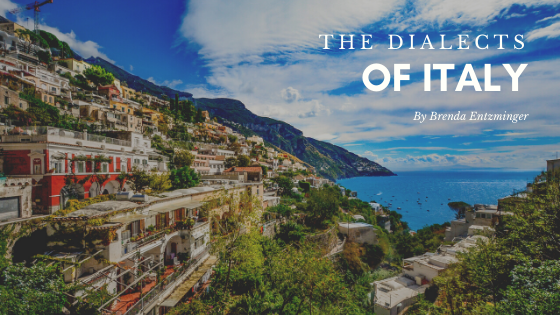When learning a language, most individuals can stick to standard grammar and punctuation. However, for individuals looking to travel and use their language skills, it may be a good idea to consider various dialects. Much of the time, you can get away with using the standard language, but attempting to learn a dialect or two is often a fun challenge that can glean more insight into a local culture.
Italian Dialects
A dialect indicates a manner of speaking that varies from the standard rule. In Italy, the official language is Italian, but there are actually 28 languages spoken within the nation; however, Italian natives do not refer to these as languages but dialects of other languages. The difference between a dialect and a language is dependent on the rules of the language and official designation as a language by the government, as well as whether the difference is documented in writing. In the case of the Italian language, most of the deviations are not written down, and though there are many differences between the dialects/languages, they are not significant enough to be considered separate languages by native Italian speakers. It is believed that all of the languages that are spoken in Italy derive from Classic Latin, meaning that they developed in a parallel fashion rather than originating from Italian itself.
Romanesco
Spoken in Rome, this dialect is the closest to standard Italian of all the other dialects in Italy. The article il changes to er in Rome, and there are a few other notable grammatical changes, as well. Individuals learning Italian would not need to study too hard to master the Romanesco dialect on top of standard Italian.
Neapolitan
This dialect has spread across the southern reaches of Italy, and due to the Spanish hold on the region of the past, Neapolitan continues to bear a number of Spanish loanwords and other influences. It is commonly spoken even by the younger generations and boasts interesting slang such as Jamm checazz’ (“Things are going well”) which is used in a sarcastic sense.
Sicilian
The spelling of this dialect is not fixed, making more malleable and flexible, even for new learners. In Sicily, native speakers often have a thick accent, which reveals that Sicilian is not a deviation from standard Italian but instead derived as its own language. With elements of Greek, Spanish, Latin, and Arabic (among other languages), Sicilian is arguably one of the more challenging dialects to adopt.
